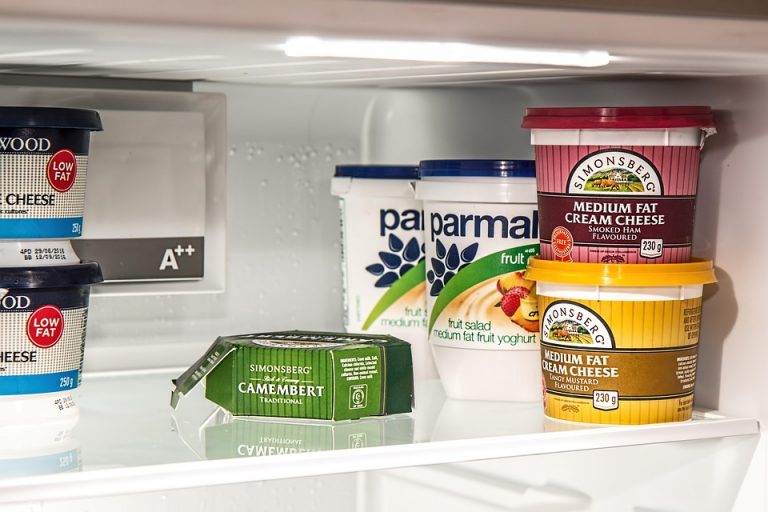Cryptocurrency exchanges are the bustling marketplaces of the digital finance world, where you can buy, sell, and trade your favorite cryptocurrencies. Understanding how to navigate these platforms is crucial for anyone looking to dive into the crypto landscape. This guide will empower you with the knowledge you need to make informed decisions and maximize your investment potential.
Contents
What Are Cryptocurrency Exchanges?
A cryptocurrency exchange is a platform that facilitates the trading of cryptocurrencies for other digital currencies or traditional currency like the dollar. Think of it as a digital marketplace where buyers and sellers converge. The significance of these exchanges can’t be overstated; they serve as the entry point for many into the world of crypto, bridging the gap between fiat and digital currencies.
Why Does It Matter to You?
Navigating the crypto landscape effectively can mean the difference between a rewarding investment and a costly mistake. With thousands of exchanges out there, each offering different features, fees, and security levels, knowing how to choose the right one for your needs is essential.
Types of Cryptocurrency Exchanges
Understanding the different types of exchanges can help you find the one that fits your trading style.
1. Centralized Exchanges (CEX)
Centralized exchanges are operated by companies that act as intermediaries. They manage your transactions and hold your assets. Some popular CEXs include:
- Coinbase
- Binance
- Kraken
Pros:
- User-friendly interfaces
- High liquidity
- Customer support is available
Cons:
- Security risks associated with holding funds on the platform
- Potential for regulatory scrutiny
2. Decentralized Exchanges (DEX)
Decentralized exchanges allow peer-to-peer trading without intermediaries. You maintain control of your private keys and funds. Examples include:
- Uniswap
- SushiSwap
- PancakeSwap
Pros:
- Greater privacy and security
- Lower fees in some cases
Cons:
- Less user-friendly
- Limited customer support
3. Peer-to-Peer Exchanges (P2P)
P2P exchanges connect buyers and sellers directly. They often facilitate transactions using escrow services to ensure safety. Notable P2P exchanges include:
- LocalBitcoins
- Paxful
Pros:
- More payment options
- Greater privacy
Cons:
- Risk of scams
- Slower transaction times
Key Features to Consider
When choosing an exchange, several features can make or break your experience.
Security Measures
Look for exchanges that utilize strong security protocols. Two-factor authentication (2FA), cold storage of funds, and regular security audits are signs of a trustworthy platform.
Fees and Charges
Different exchanges have different fee structures. Make sure to compare:
- Trading fees
- Withdrawal fees
- Deposit fees
User Experience
A user-friendly interface can save you time and frustration. Look for platforms that are intuitive, especially if you are a beginner.
Liquidity
High liquidity means you can easily buy and sell assets without affecting the price. Check the average trading volume of the exchange to gauge its liquidity.
Supported Coins
Not all exchanges support the same cryptocurrencies. Make sure the exchange you choose offers the coins you want to trade.
A Deep Dive into Top Exchanges
Let’s explore some of the leading exchanges that have captured the attention of crypto enthusiasts.
Coinbase
Overview: Coinbase is one of the most user-friendly platforms for cryptocurrency trading.
- Security: Strong security measures, including 2FA and cold storage.
- Fees: Higher fees compared to some competitors; watch out for transaction fees.
- Supported Coins: Offers a wide range, but not as extensive as others.
Ideal For: Beginners looking for an easy entry point into crypto.
Binance
Overview: Binance is one of the largest exchanges in the world by trading volume.
- Security: Multiple layers of security, including SAFU (Secure Asset Fund for Users).
- Fees: Low trading fees, often less than 0.1%.
- Supported Coins: A vast array of cryptocurrencies.
Ideal For: Experienced traders seeking a diverse trading environment.
Kraken
Overview: Known for its robust security features and wide range of supported cryptocurrencies.
- Security: Strong emphasis on security, including cold storage and 2FA.
- Fees: Competitive fee structure, especially for high-volume traders.
- Supported Coins: Offers a diverse range of cryptocurrencies.
Ideal For: Traders looking for a balance between ease of use and advanced features.
Uniswap
Overview: A leading decentralized exchange that operates on the Ethereum blockchain.
- Security: Offers users control over their private keys.
- Fees: Typically lower than centralized exchanges but can vary.
- Supported Coins: Supports a wide variety of ERC-20 tokens.
Ideal For: Users who prioritize privacy and control over their assets.
Paxful
Overview: This P2P exchange connects buyers and sellers directly.
- Security: Uses an escrow service to protect transactions.
- Fees: Generally low, but watch out for seller fees.
- Supported Coins: Primarily Bitcoin, but some others too.
Ideal For: Those looking for flexible payment options and direct trading.
Tips for Safe Trading
Navigating the crypto landscape can be exhilarating but also fraught with risks. Here are some tips to keep you safe:
Do Your Research
Before diving into any exchange, research its reputation. User reviews and industry ratings can provide valuable insights.
Use Strong Passwords
Always use complex passwords and consider a password manager to keep your accounts secure.
Enable Two-Factor Authentication
Activating 2FA adds an essential layer of security to your account.
Withdraw to a Wallet
If you’re not actively trading, consider transferring your assets to a secure wallet. This minimizes the risk of losing funds through exchange hacks.
Emerging Trends in Crypto Exchanges
The crypto landscape is ever-evolving. Here are a few trends to keep your eye on:
Regulation
Regulatory frameworks around cryptocurrency exchanges are tightening worldwide. This could mean better security and consumer protection but might also lead to higher fees.
Decentralized Finance (DeFi)
The rise of DeFi platforms is reshaping how people interact with financial services. DEXs are becoming increasingly popular, offering unique opportunities and challenges.
NFT Marketplaces
Many exchanges are now integrating NFT capabilities, allowing users to buy, sell, and trade non-fungible tokens alongside traditional cryptocurrencies.
Bottom Line
Navigating the crypto landscape is an exhilarating journey filled with potential rewards and pitfalls. By understanding the different types of exchanges, key features to consider, and best practices for safe trading, you can confidently participate in this dynamic market.
Are you ready to take the plunge? Whether you’re a beginner or a seasoned trader, the right exchange can make all the difference. Do your research, stay informed, and always prioritize security.
FAQs
1. What is the safest cryptocurrency exchange?
The safest exchanges typically have strong security protocols, such as Coinbase and Kraken. Always do your research.
2. Can I trade cryptocurrencies without an exchange?
Yes, through P2P platforms or directly with other individuals, but this carries additional risks.
3. Are cryptocurrency exchanges regulated?
Regulation varies by country. Always check the legal status of an exchange in your jurisdiction.
4. Can I use multiple exchanges?
Absolutely! Many traders use multiple platforms to take advantage of different features and fees.
5. How do I choose the right exchange for me?
Consider your experience level, the currencies you want to trade, fees, and security features.
Now, take your first step into the world of crypto with confidence!








